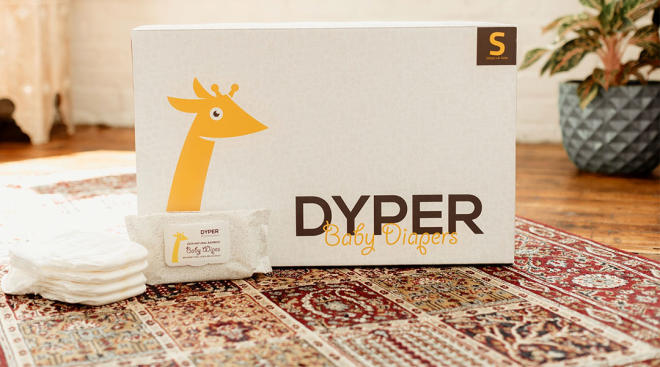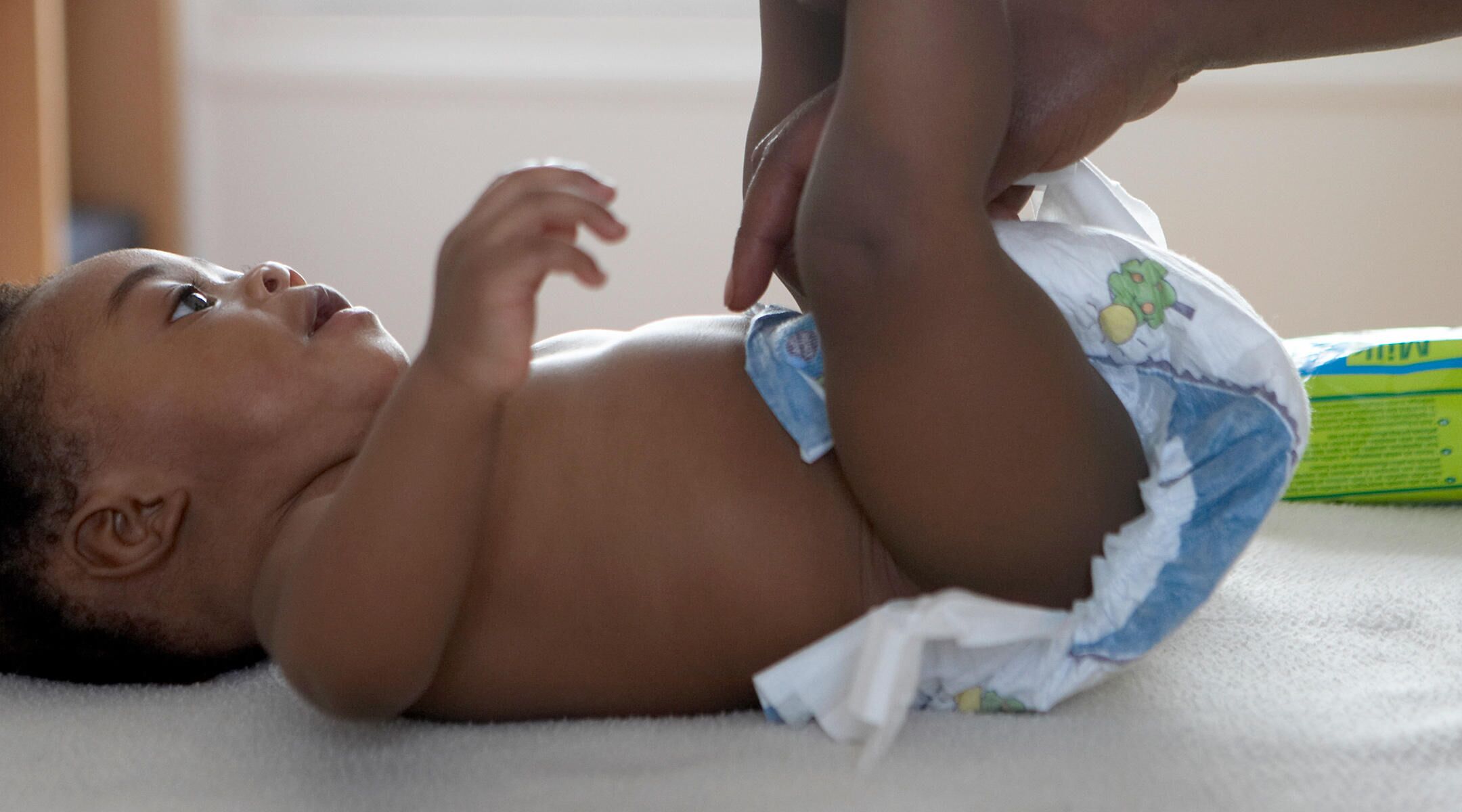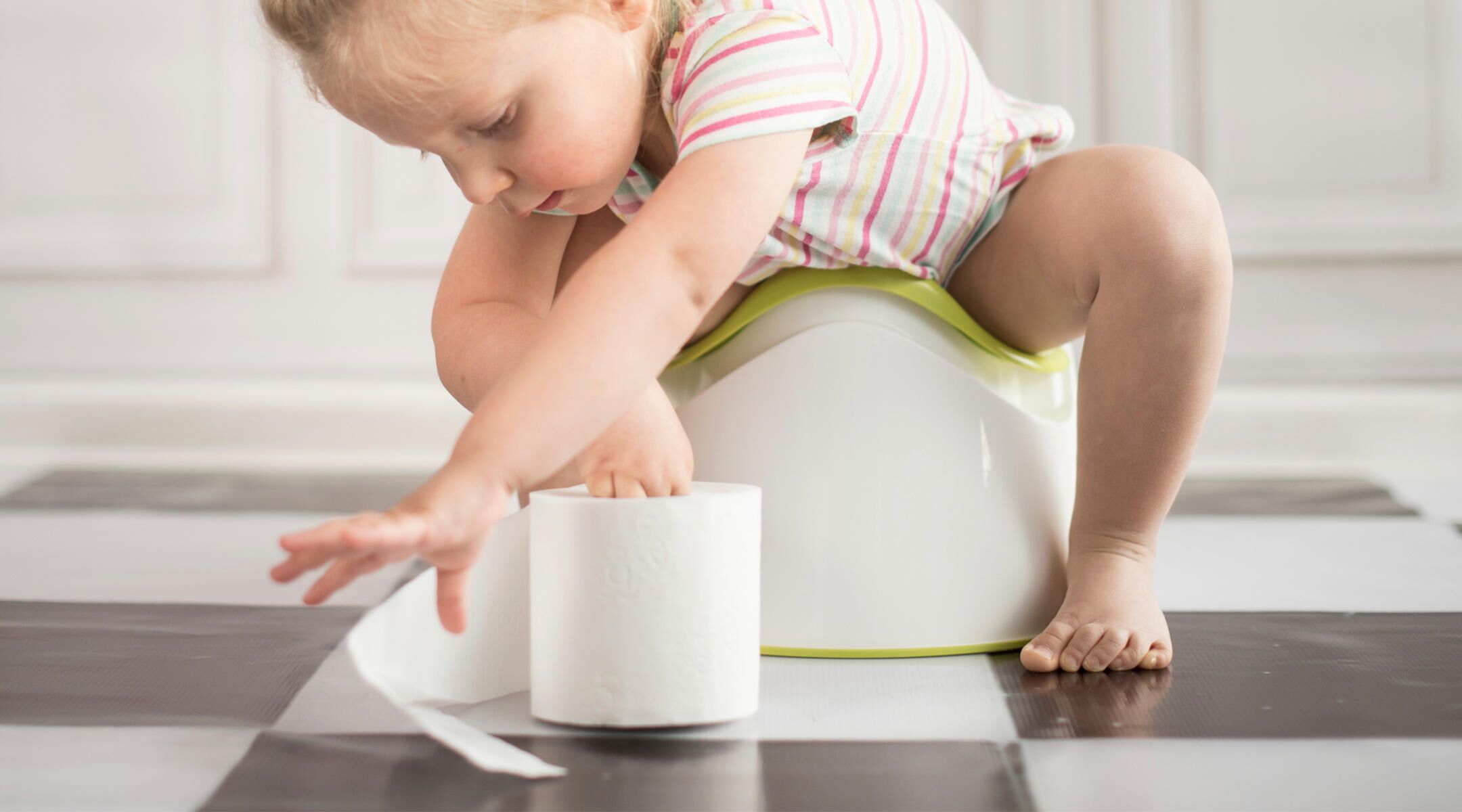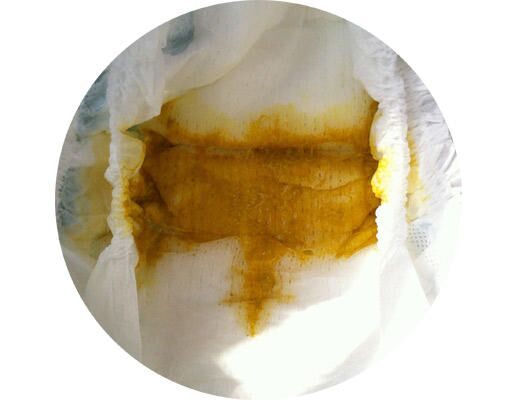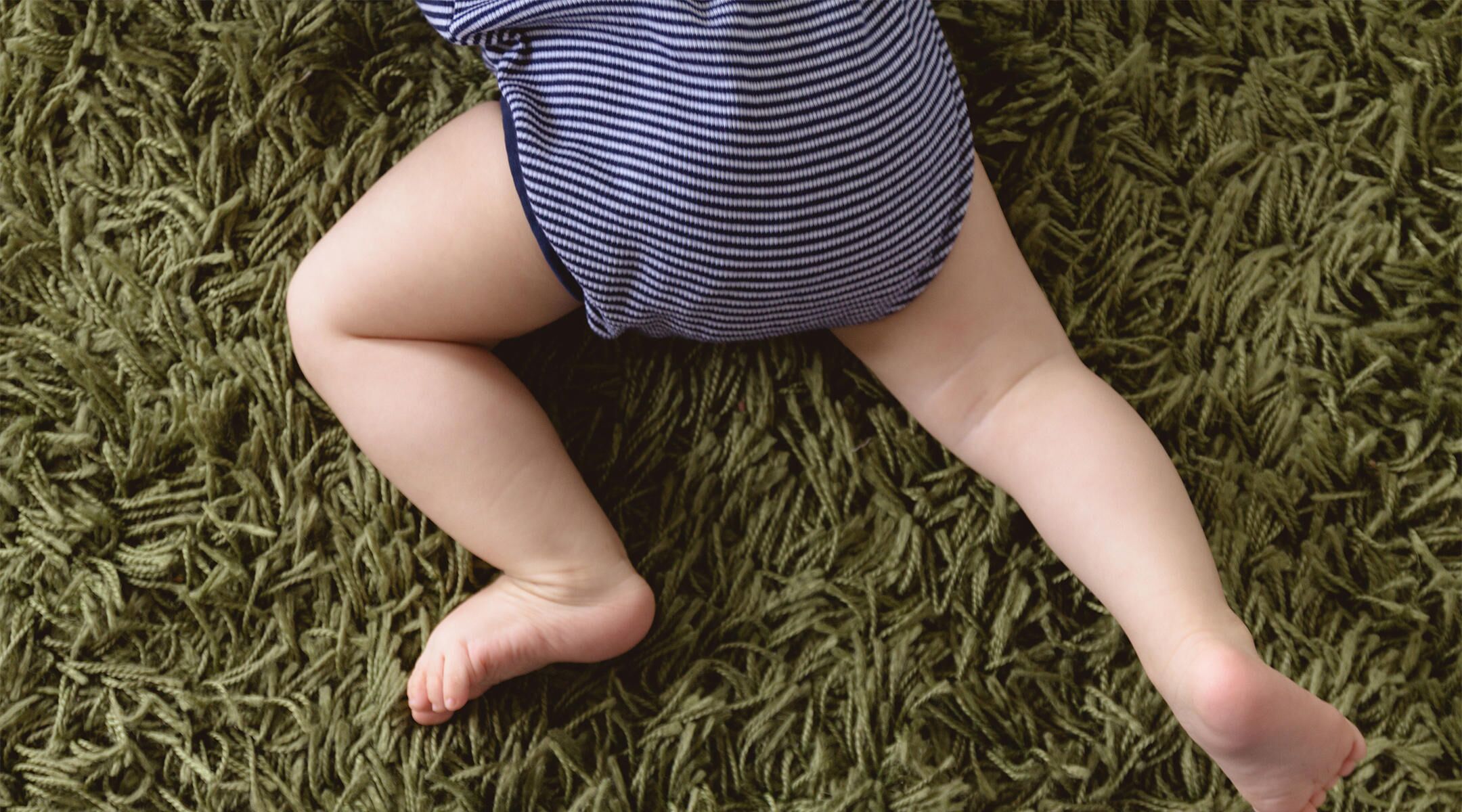Meconium: What to Know About Baby’s First Poop
It’s a little-known fact outside of parenting circles: Babies have a first poop called meconium, and it’s unlike any other BM you’ve seen. If you’re not prepared for that dark, tarry substance, you might understandably be concerned and even confused. For the record, it’s normal—and expected—for babies to pass meconium after birth. But if baby inhales it while in-utero, or if it causes an obstruction after birth, it can lead to potentially serious complications. Here’s what you need to know about meconium, plus signs something could be off.
Meconium is the medical term used to describe baby’s first poop. It’s made up of all the stuff baby was swallowing in-utero (amniotic fluid, lanugo, bile, mucus and dead skin cells). “Basically, baby is getting rid of a lot of things,” says Anjuli S. Gans, MD, a pediatrician at Children’s Hospital of Philadelphia. “It’s liquid from their time in the womb.”
Baby’s first few bowel movements will be meconium; it’s thick in texture, dark green or black in color and—fair warning—hard to wipe away. Its tar-like appearance may catch you by surprise, but rest assured, it’s completely normal. However, babies occasionally pass meconium while still in-utero, and this can potentially cause complications.
When a baby has a meconium bowel movement before or during birth, the meconium can mix with amniotic fluid. Sometimes, baby will swallow some of this mixture; this is usually harmless. However, if baby inhales meconium—known as meconium aspiration—it becomes a more pressing concern.
What is meconium aspiration?
“Meconium should remain in the intestines during pregnancy, but sometimes infants pass some meconium that mixes in the amniotic fluid before delivery,” says Susan J. Dulkerian, MD, chair of the department of pediatrics and medical director of newborn services in The Family Childbirth and Children’s Center at Mercy Medical Center in Baltimore, Maryland. All babies breathe in-utero, she explains, and baby can “breathe in some of that amniotic fluid that is mixed with meconium, causing problems such as breathing difficulties to a severe pneumonia and respiratory failure in the worst cases.”
Meconium aspiration syndrome is “not common, but it’s not rare either,” says Daniel Ganjian, MD, a pediatrician at Providence Saint John’s Health Center in Santa Monica, California. “Most pediatricians do end up seeing this in their career,” he adds. According to research, in-utero meconium passage happens in about 12 to 20 percent of births—and up to 40 percent of births that go past their due date. Meconium aspiration only occurs in about 3 to 9 percent of these births, though.
If your doctor realizes that baby has passed meconium before or during birth, they’ll work to determine a plan of action. According to guidelines established by the American Academy of Pediatrics and the American Heart Association, if baby is breathing well, has good muscle tone and a healthy heart rate, no immediate steps are necessary beyond some gentle suctioning of the mouth and nose. On the other hand, if baby is struggling, your medical team will immediately begin any necessary resuscitation efforts.
What causes meconium aspiration?
Meconium aspiration syndrome usually happens when baby is stressed due to a decrease in oxygen and blood supply, and passes meconium while still inside the uterus, according to the US National Library of Medicine.
There are a few factors that increase the risk of meconium aspiration:
• An aging placenta caused by a pregnancy that goes far past the due date
• Decreased oxygen to baby while in-utero
• Gestational diabetes
• A difficult delivery or long labor
• High blood pressure in a mom-to-be
• Baby can breathe in meconium before, during or after labor, Gans says.
Signs of meconium aspiration
There are a few potential signs that baby is dealing with meconium aspiration syndrome, Gans says:
• Meconium-stained amniotic fluid
• Meconium stains on baby right after birth
• Baby has difficulty breathing
• Baby has a bluish tint to their skin
How to treat meconium aspiration
If your doctor suspects that baby has meconium aspiration syndrome, they’ll usually order a chest X-ray, Ganjian says, and then decide if baby needs supplemental oxygen. “If they need a lot, we may need to intubate the baby,” he explains. Luckily, “most babies recover pretty well and completely over the long term,” Gans says, adding that some babies will have a higher risk of wheezing or pulmonary infections during their first year.
Meconium builds up in baby’s intestines during your pregnancy and is usually passed during the first 24 hours after birth. “It transitions to a more ‘normal’ stool as the infant begins feeding after birth,” Dulkerian says.
Meconium looks like a “black, tarry, thick stool,” Ganjian says, noting that meconium “usually lasts for about one to three days” before it resembles normal poop. If you’re breastfeeding, you’ll notice baby’s poop starts looking more mustard yellow; a formula-fed baby’s stool can be yellow, brown or green.
Meconium can cause issues for baby after birth in a condition called meconium ileus. This can happen when the meconium is especially thick and sticky; it’s most commonly diagnosed in babies with cystic fibrosis.
What is meconium ileus?
Meconium ileus is a bowel obstruction, Gans says. “It can create a blockage in the ileum, which is part of the small intestine,” she explains. Babies can get sick because of the blockage, which “doesn’t allow poop to come out correctly,” Ganjian says.
What causes meconium ileus?
There are a few different things that can cause meconium ileus, Dulkerian says, including:
• Cystic fibrosis
• An infection
• Bowel anatomy abnormalities
• Some medications used during labor, such as magnesium sulfate
Signs of meconium ileus
Meconium ileus is usually diagnosed within the first 48 hours after baby’s birth. Doctors typically look out for these signs of meconium ileus, Ganjian says:
• A swollen abdomen
• Vomiting
• Baby not passing stool
How to treat meconium ileus
If your doctor suspects that baby has meconium ileus, they’ll usually order an abdominal X-ray, Ganjian says. From there, the doctor may recommend an enema to wash out the blockage.
Your newborn also may not be offered food, or they might need to be fed through an IV, to allow the bowel to rest, Gans says. If necessary, a gastric tube may be inserted to take out excess air or fluid. “If that doesn’t work, baby may need surgery to try to break up the blockage,” she says.
Most doctors will also test baby for cystic fibrosis, as meconium ileus is often the first manifestation of this disorder.
Bottom line: Poop happens, and meconium is a normal and natural part of those early days with baby—so if their first few stools look a little tacky, don’t be alarmed. Meconium complications before, during and after childbirth can be scary, but the good news is that doctors can typically treat meconium aspiration right away—and if they identify meconium ileus, they’ll work to remove the blockage and identify next steps.
About the experts:
Susan J. Dulkerian, MD, is chair of the department of pediatrics and medical director of newborn services in The Family Childbirth and Children’s Center at Mercy Medical Center in Baltimore, Maryland. She received her medical degree at St. George’s University School of Medicine, Grenada, West Indies.
Daniel Ganjian, MD, is a pediatrician at Providence Saint John’s Health Center in Santa Monica, California. He earned his medical degree at the University of California Irvine School of Medicine in Irvine, California.
Anjuli S. Gans, MD, is a pediatrician at Children’s Hospital of Philadelphia. She received her medical degree at Georgetown University School of Medicine in Washington, DC.
Please note: The Bump and the materials and information it contains are not intended to, and do not constitute, medical or other health advice or diagnosis and should not be used as such. You should always consult with a qualified physician or health professional about your specific circumstances.
Plus, more from The Bump:
Navigate forward to interact with the calendar and select a date. Press the question mark key to get the keyboard shortcuts for changing dates.









































